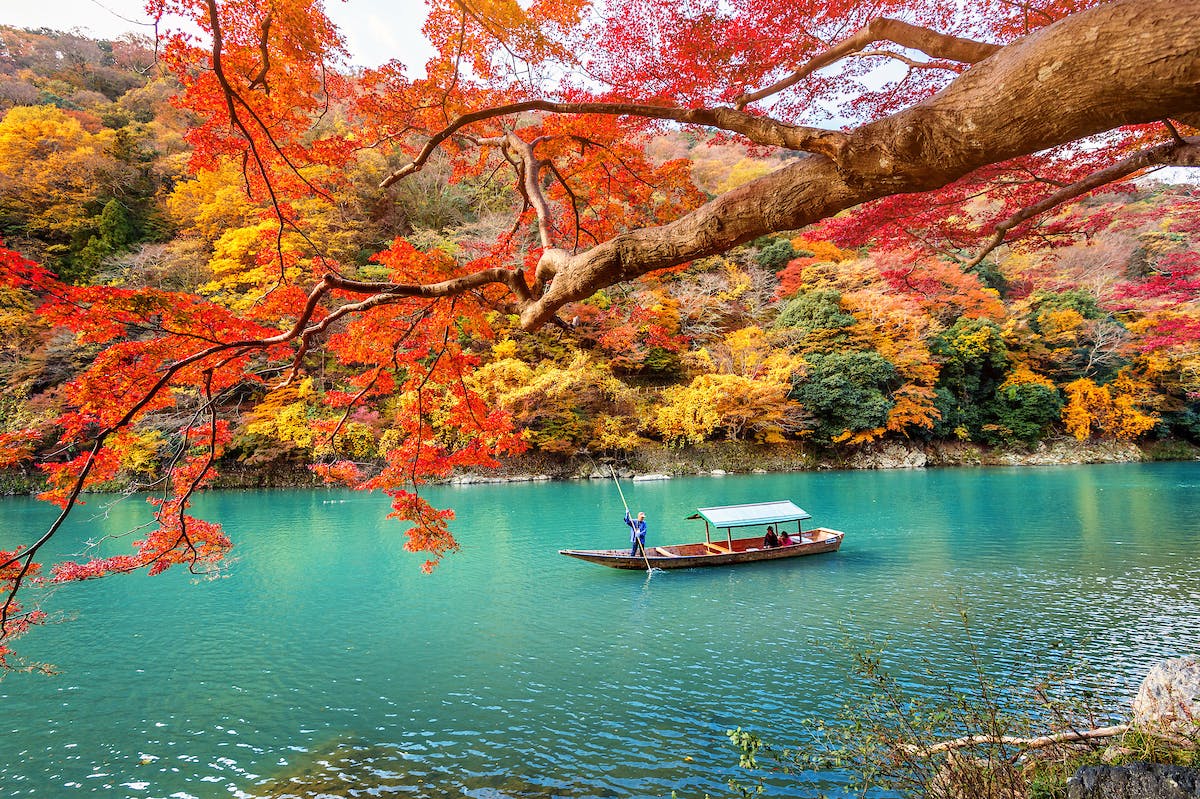Tale of Tales: The Truest Note, by Laksmi Pamuntjak
Indonesian novelist, poet, food writer and journalist Laksmi Pamuntjak’s Tale of Tales chapter is part of a series commissioned by Silversea Cruises to chronicle a world cruise through the eyes of some of the world’s best writers, photographers and visual artists. This anthology celebrates all those who were part of the extraordinary 2019 World Cruise. Those who travelled further into the world to discover its beauty. Those who were fascinated, amazed and delighted by the stories they encountered – the stories they shared – and the story they created. Pamuntjak traveled from Benoa to Tokyo onboard Silver Whisper. This is her tale.
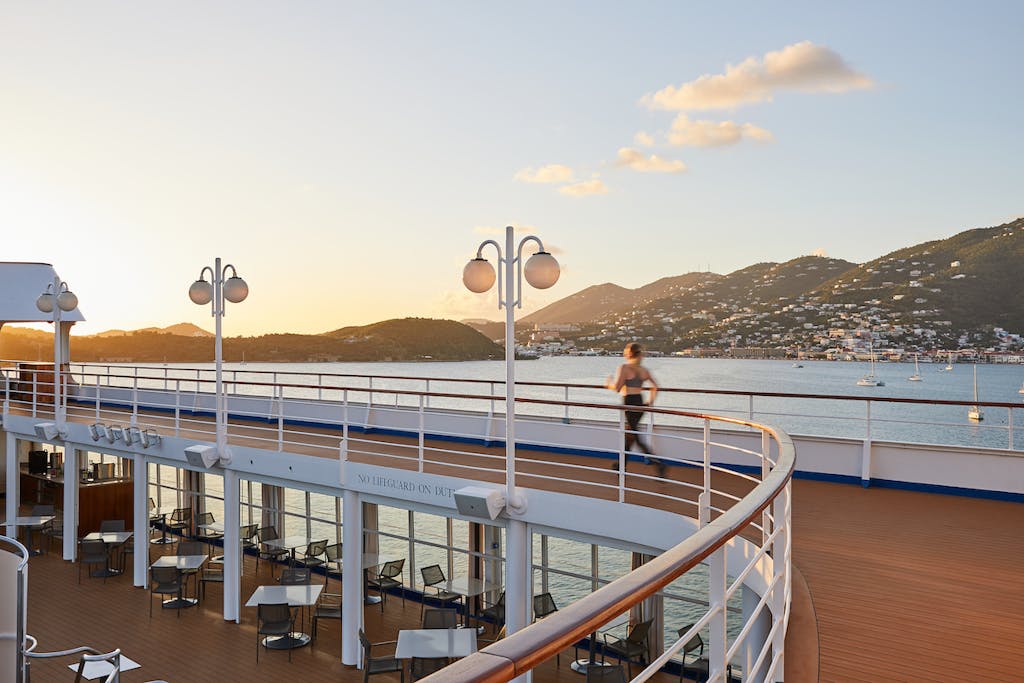
I am at sea, but the sea is not
a strange place after all, it belongs
to earth. It swells and stills,
is occasionally allowed its rough
patches and easy truces. In the
evenings, there are no stars in the sky,
but people dance as if there were.
Mornings have the easier part of it,
as the light does its own dance.
But I’m the child of dusk. I wait
for the sun to set; only then can
I see clearly.
Today the sun hovers above the
horizon a split second longer
than the ocean is used to.
I’m convinced it’s for my benefit.
It pleases me that the air still
carries our gravity, that my feet
are steady. There is peace
everywhere. Peace in old
couples clocking their miles
on the jogging track. Peace in
a sleepy harbour of an old
forgotten town, in the peeled-off
neon signs on decrepit shop houses.
Peace in the breakaway gull
that rises from the sea and offers
a pose just as we’re about to
click our shutters.
This is a beautiful boat,
and the waves acknowledge it as
they reverberate through my feet
and into my belly. The way
I down my post-show drinks
and sleep at night.
We set sail at sundown,
leaving the seaside waste,
the dusty streets, the gutted
buildings the brochures dare
not pronounce. For a moment
I thought the city was in
mourning. By the second hour,
I can no longer remember
why I cared. Even the most savage
of decay fades from memory:
we do not choose to stay in
ruins, not even the sort that
flares us to every hint of bigotry,
on board or on shore—to that
great shadow of Empire.
You told me very early on:
you do not understand poetry,
nor do you ever wish to.
I told you to write poetry is to be
somewhere between nostalgia
and forgetting; between earth
and water.
But I’m being heroic. Truth is,
you are unshakeable. You trail
me, smother me, like salt wind
on my skin. You echo my
indignation; you magnify it you
handsome devil. Still later you try
to cajole me into embracing the
ruins. “They are the only things
we have left,” you say without
irony. Cities preserve their ruins
to remind them of what once was.
Manila (In the Art Fair)
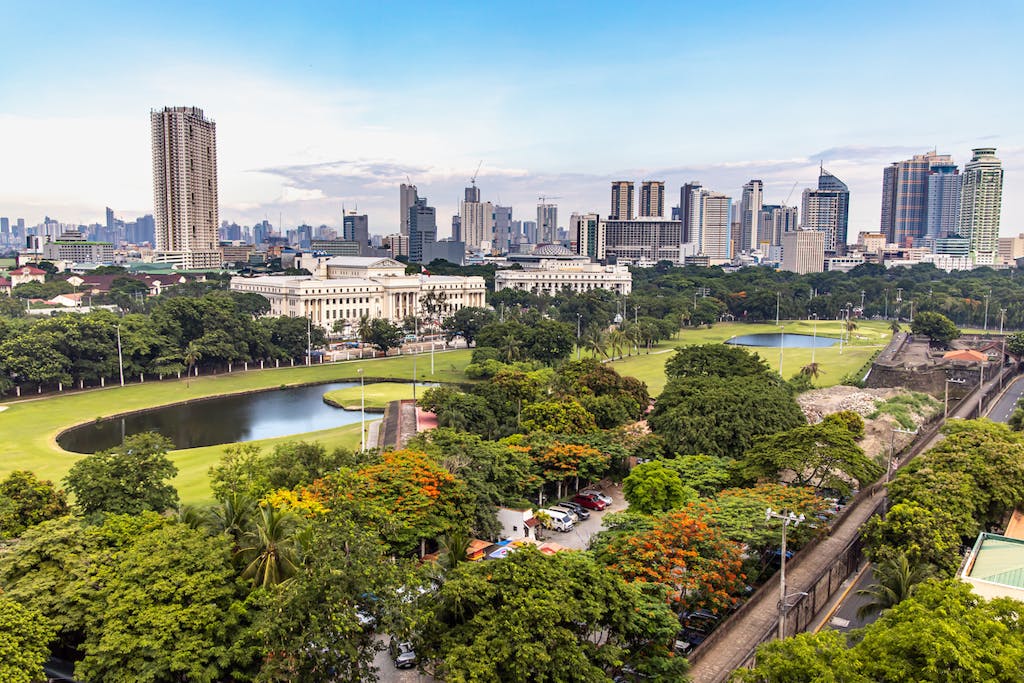
The woman is trapped in a glass jar,
but backlit like a heroine.
She’s sitting on a chair,
on some kind of a pedestal,
with her back bent ninety degrees.
Your name is Manila, I tell her,
and she doesn’t offer any
resistance.
It’s hard to know
whether she’s suffering,
or who, among the likes
of her, immured in the
same fashion, is suffering
most. Is she in chains, is she
defiant, is she praying
or readying for battle?
Does she love her bubble,
secretly, as she loves the way
the light falls on her as only
her confinement can offer—
on her delicate knees,
on the small of her back,
on the curls of her hair?
But such is the deal, it appears.
While the city speeds by,
kicking dust with its big mouth
open, the girl rests in her quiet
shell and takes aim. Rayya thinks
the girl is blue, and broken,
and she’s hardly ever wrong
on such matters. But the girl’s
heart is like the city. It never
dries up. And in this vernissage,
where even an earthy red
Ocampo has to cry out for
attention, the light shines
her the brightest gold.
The sun doesn’t know what
she wants, she keeps robing
and disrobing. Sometimes
she sheds a watery light
upon unexpected scenes—
an old man wobbling
on the deck and falling flat
on his face, peacocks offering
themselves up for sacrifice,
paunchy men dressed as
mermaids. Sometimes
the sky sucks her into
a thin blade, leaving itself
the color of brackish water.
And it doesn’t seem to mind,
like a stoic, weather-beaten
boyfriend.
When she goes down
at last, the wind seems
to recall something.
The sweet tropics are over.
The night turns velvet.
I propose another round of
Bloody Marys even though
it’s almost quarter to seven
and Sam is about to do his
stand-up schtick.
He’s very funny, says a woman
of some seventy summers.
And yes, we squares will always
laugh, often at the same jokes,
because we don’t know how
not to. We think we are
here to see the world
though in truth we do not
let the world in. But the good
news is, the seasons come and go.
It’s the one luxury we don’t
have to pay for whatsoever.
Kaohsiung
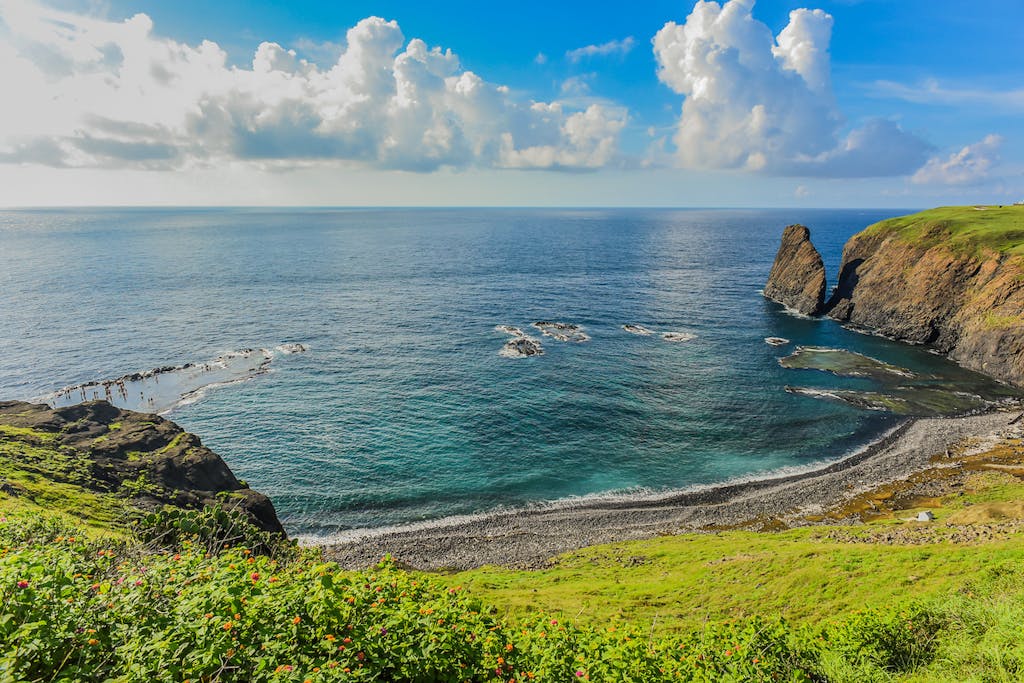
It’s a new world, so Rayya
and I take the shuttle bus
downtown. There are three
of us, and our new DJ friend
keeps talking of nights in Budapest
where money was easy
and beauty was unsoiled.
Music is overrated, he says.
We don’t agree with him, not really,
but we nod, yes, yes…we
totally get it, and off we go
questing for the first rate.
Two hours later: a designer mall
standing among ruins, an alleyway
lined with potted flowers, a girl
cycling circles around the palm trees
like a stray goddess. So much for
goodwill. This is a city of relics:
brokeback, out of breath and
out of tricks. Even its last-ditch
efforts are needlessly inflated—
the toad and the crying girl
by the park, the giant gorillas
guarding the harbour, the lone
modernist tombs fading from sight
at the slightest drizzle.
A miracle then, when sailing away
at sunset we turn around and
suddenly lose our bearings.
Where are we?
South Italy?
Scotland?
Somewhere in Casterly Rock?
Then all I remember is our phones,
out in a flash; us clicking, texting,
doing the duty of posterity.
We are awestruck. It appears
that we are leaving an island so
magnificent in our wake, we must
have dreamed up the rest.
It’s my partner’s birthday today
and I’m not there. The double K
of the route punctuates my sorrow,
brands it to my insides. If there
is a chill in the air, it must be
my punishment.
In mid-afternoon Rayya
and I bundle up and dare
ourselves to go to the deck.
The staff do their best not to pity
us. This is nothing, one of them
tells us. Where I worked last,
it was freezing all the time.
But there were plenty of
dog-sledding and loud glimpses
of the Northern Lights.
It was kinda cool.
We listen and smile politely.
Then we order a fish and forsake
dessert while tough Midwesterners
take their positions in the
swimming pool for a game
of volleyball. This time we do not
cheer them, or wait till the staff
join in for some aerobics fun
so we can take even more pictures
of mateship and class solidarity.
Winter is here.
Love is a bitch.
Taipei
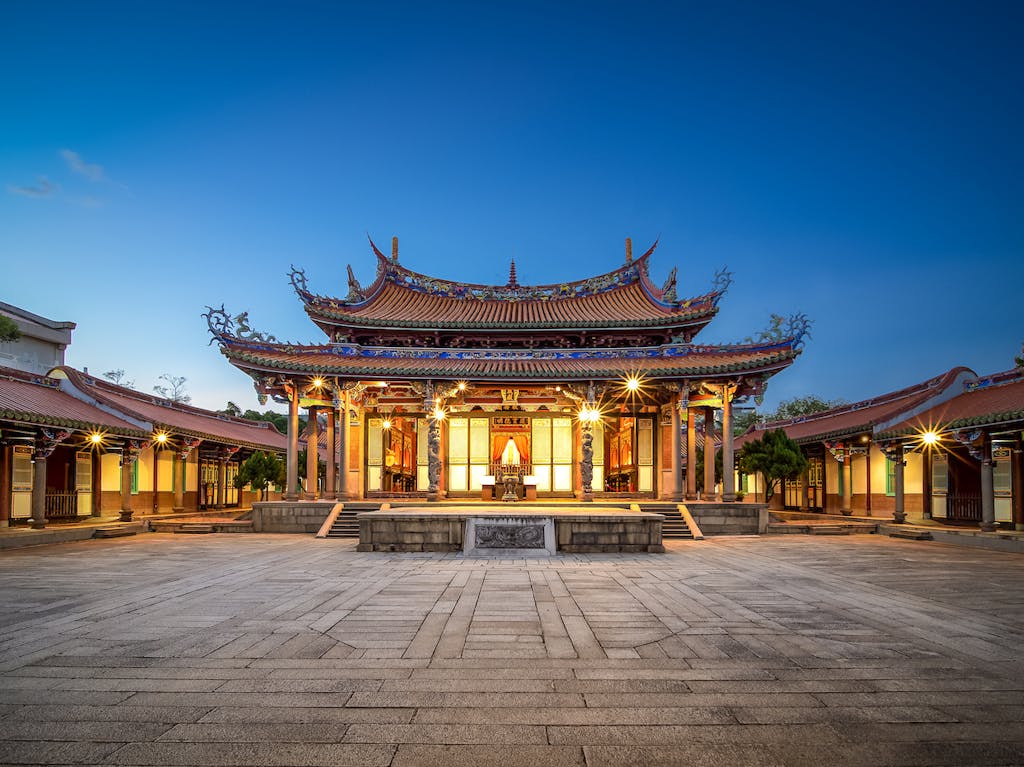
Poetry didn’t teach me to admire
subways and high speed trains,
but without them I couldn’t have
known that timetables meant love, say.
Once upon a time, in Berlin,
or in Madrid, I went into trains
to escape love, to escape failure,
to get away from the source of
desire before its absence scorched
me. The faith was blind, the feet
unseeing, and the ear learned to love
the sound of an approaching
train no matter where it was going
or where it was coming from.
Underground Taipei is so efficient
and twenty-first century
it makes me cry. Up above is so
vast, its landscape so strange the
way buildings pierce the sky, the way
they revere the past and the present,
as if continuity were a given.
Generalissimo Chiang is a hero,
no argument there; his resting place
is so gigantic at first you have no idea
it is flanked by the national theatre
and the national concert hall like
a coddled egg. You can’t help but
think of his four wives and the way
they must have had his back; just look
at the way the rain keeps on pouring down,
forming its clean, hard-headed armour.
At the Longshan Temple, people
worship differently, though their
love of rituals might have been
forged in the same furnace.
They are quieter, fiercer, bound to
the settler’s code. They pray as though
all of life hung on it; if I could I’d stay,
beyond that moment, watching,
loving. Loving this, and the edifices,
and the dreams and the timetables;
loving words and loving charts,
loving you and loving him,
loving all over again.
‘
Two days at sea.
The wind’s cold
plunges straight
to the heart.
We dance in the
dark. It is rough.
Osaka
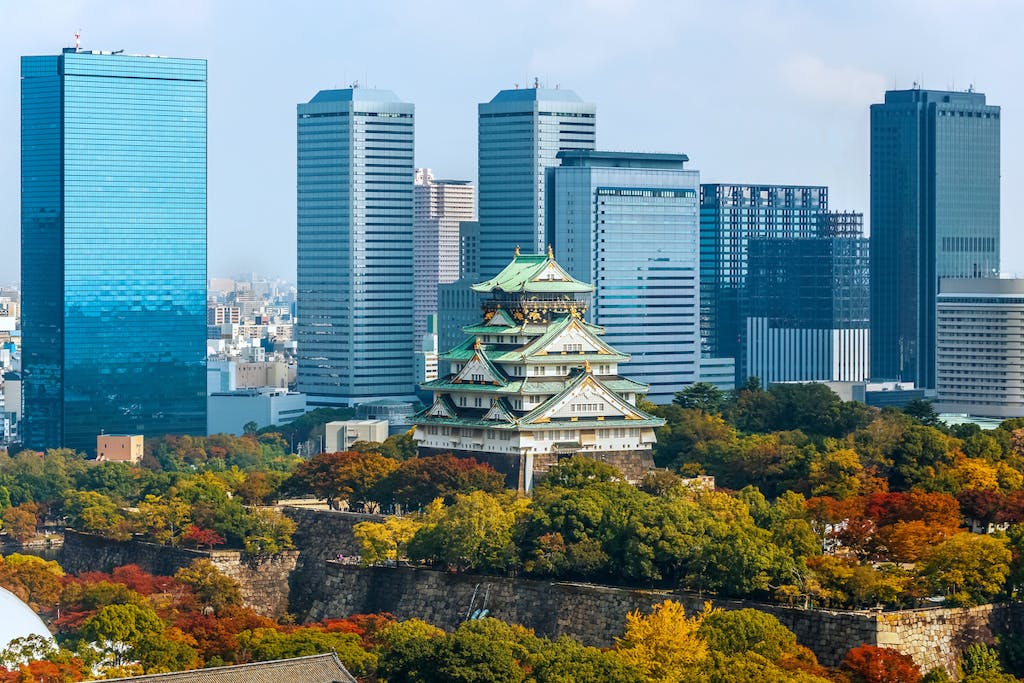
And the world rises.
Just like that. So much
sunlight it almost bleaches
away the features of the port,
you’d think you must have done
something good during the cold
dark nights, healing the sun with
your half-drunk tango steps
and your amor fati while stars
sink and dawn recovers its wit.
For how could a land cave in to its
own myth without the help of man?
There was a time when Portuguese
merchants and missionaries bound
for this land envisioned the Orient
as the end of the earth, and Japan its
utmost rim. They had no idea what
it was like. Once there, they were
so deeply cherished by the villagers,
were given churches adorned by
flowers, they could not have known
that soon they would be hunted down,
their vessels barred from entry. Or that
their Christian brethren would have
boiling water poured over their naked
bodies for hanging on to their faith.
I also have no idea whether it’s true
what this beloved author says, that
if you want to feel happy you go to
a Shinto shrine, not a Buddhist temple,
because the latter makes people think
of darkness and death.
But there I am leaning on the railing
of an orange bridge, watching
World Cruisers scoop purifying water
from the well and practicing the steps
of the Shinto prayer rituals,
and thinking, well, how do you rate
happiness? We’re not put here on
this earth to be happy, but you don’t
want to miss it because you know
it doesn’t last.
Faith is gentler, deadlier, it follows you
quietly like family, like a buried secret.
It roots, hides before pouncing,
often with spectacular tact,
until one day you find yourself
following it home, with your tail
between your legs.
You’ll need faith, not happiness,
when you almost didn’t make it
back to the ship that evening, say.
The great big engine already
roaring and folks already
clinking glasses in the dining room
when you boarded like a pair of runts
wishing you hadn’t been born.
Kyoto

Beloved books have memory; they
direct my eyes which found them
way back when, at the age of twenty,
to the right shelf in my library;
they weave the lines that had me
riveted all those years ago into
the word; the same set of wiles
they used that had me remember
all of the feelings I knew I’d have
when experiencing for the first time
the gentle mist over tree-thick hills,
the sound of silence, everywhere
the sight of women and their children,
so contented in their good deportment.
Like every starved soul that has landed
on Kyoto, I train myself to listen to
the movement of water, to pause
before every Jizō stone so as not
to miss a single mother’s lament,
to know how to be serene and
still accept that the world outside
stays unabashedly the same. I sit
in the midst of the Heian Shrine
forest, alone, in the rain, not
needing to find my way back
to what I knew then. I lose myself
in a love of myself, in a love of
the now, and this truth is light
on my heart.
Nothing, not even the din
of traffic beyond the garden
wall can touch me. I am already
in the first flush of spring, I am
making a harvest of my yin
and my solitude, my crystal
stream and my hard rock
mountain out of the colours
of Kiyomizu-dera. And I am
not the least bit surprised when,
as the last light drops away,
I can see in the dark; I need no
longer move to make things whole.
Final Destination, Tokyo
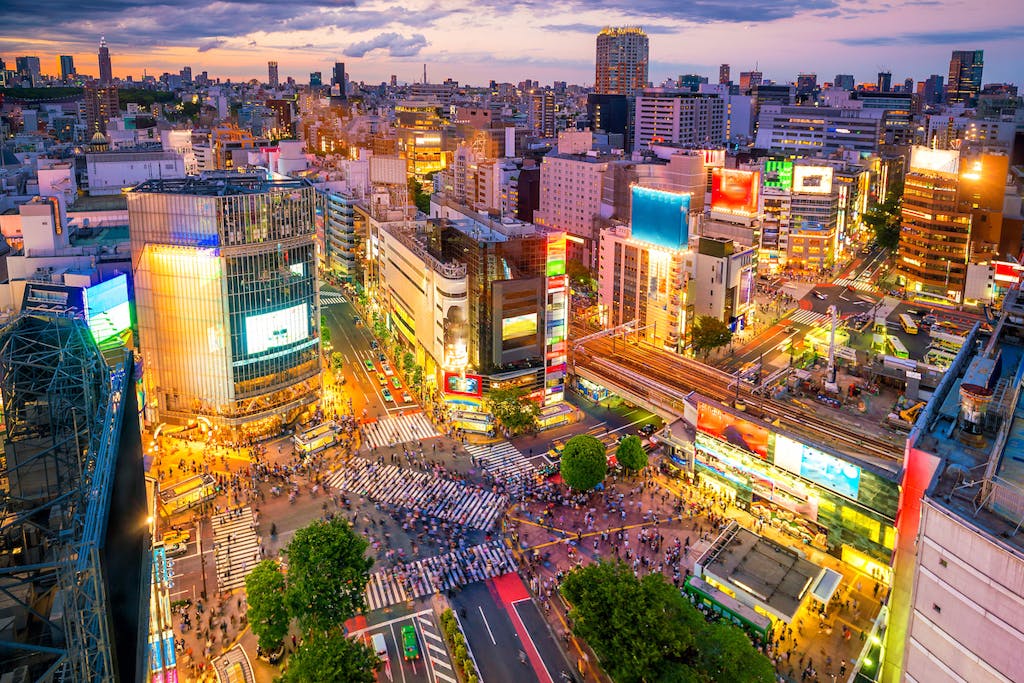
I can see why it’s easy to take
the sun for granted. Perfection
wears us so thin until we can
no longer see it.
It’s 8am, the final port of call.
The air is crisp. Daylight
goes all out in welcoming us.
It is no surprise that I’m not
unhappy to be leaving.
It’s time. The body remembers
the seasons. Remembers
the spring and the mirror image.
What astonishes is the brief pang
at the thought of never returning.
As if this were a halfway home.
Only two nights ago, the
penultimate night, Rayya
and I got the Brit and the
Swede to dance with us.
There was so much language
between us, yet in the end we
all danced alone. The dance of
beforehand and afterwards.
Of saying goodbye that wasn’t
goodbye. Like characters in
a Claire Denis movie. Know
how to separate the keepers
from the poseurs, I insist,
this is about knowing ourselves.
When we step out of the tunnel
at the appointed hour,
I’m surprised to be feeling
the cold, like a lost child.
Then I see Viki waiting by
the entrance, a guardian angel
from another world, ready
to bear me to Yokohama.
I turn around to Rayya,
my eyes welling. See you soon,
I say, because I know I will.
We have returned from the sea
and we have not turned to stone.
Land and water travel together,
it’s a pact they have with the wind.
Love is not negated just because
it’s put on pause. Or because it’s
taken over by someone else,
even for a brief while.
Funny how of all the things I’ve
learned on this voyage,
it is this teeny truth
that sounds the truest note.
